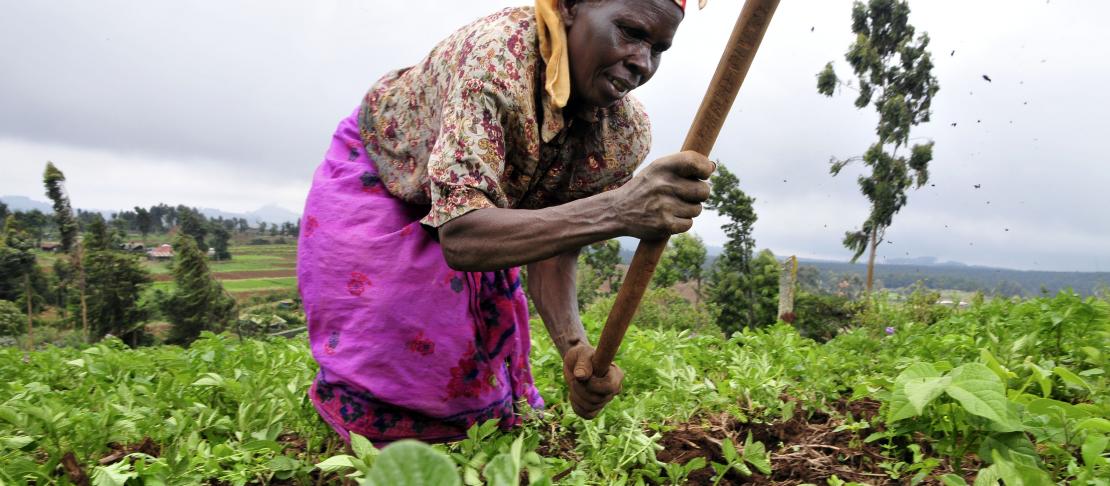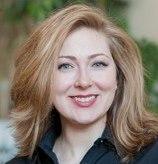SDGs and the Paris climate agreement: Achieving gender parity in African agricultural systems

To celebrate International Women’s Day, the Climate and Agriculture Network for Africa (CANA) and partners are excited to bring you a webinar on SDGs and the Paris Climate Agreement: Achieving gender parity in African Agricultural Systems.
Register here to participate!
The purpose of this webinar to raise the profile of issues that are central to agricultural development for women in Africa at local, national and international levels. The webinar will seek to answer the following questions:
- What opportunities are available for women in both agreements that can enhance their contribution and participation in agricultural activities?
- How can we ensure that the gender commitments made in the SDGs and Paris Agreement are positively implemented in agriculture and food security?
- What steps are needed to ensure gender parity in agriculture and food security?
Speakers
 Jemimah Njuki – International Development Research Centre (IDRC): Empowering women in agriculture, examples of success stories and what needs to be done to achieve gender parity in African agriculture.
Jemimah Njuki – International Development Research Centre (IDRC): Empowering women in agriculture, examples of success stories and what needs to be done to achieve gender parity in African agriculture.
 Muzhingi, Tawanda – International Potato Centre, Sub-Saharan Africa (CIP-SSA): Improving nutrition in Africa within the context of a changing climate.
Muzhingi, Tawanda – International Potato Centre, Sub-Saharan Africa (CIP-SSA): Improving nutrition in Africa within the context of a changing climate.

Priscilla M Achakpa – Women Environmental Programme (WEP), Nigeria; Africa Group of Negotiators Expert Group
Opportunities for youth in agriculture and how they can tap into climate financing.
 Katie Tavenner - International Livestock Research Institute (ILRI) Challenges and opportunities to achieving gender parity in the Kenyan dairy value chain.
Katie Tavenner - International Livestock Research Institute (ILRI) Challenges and opportunities to achieving gender parity in the Kenyan dairy value chain.
 The event will be moderated by Mary Nyasimi, - CGIAR Research Program on Climate Change, Agriculture and Food Security (CCAFS). Mary will also speak on engendering climate-smart agriculture (CSA) innovations in East Africa.
The event will be moderated by Mary Nyasimi, - CGIAR Research Program on Climate Change, Agriculture and Food Security (CCAFS). Mary will also speak on engendering climate-smart agriculture (CSA) innovations in East Africa.
Background
“If women had the same access to productive resources as men, they could increase yields on their farms by 20 to 30 percent. This could raise total agricultural output in developing countries by 2.5 to 4 percent, potentially reducing the number of hungry people in the world by 12 to 17 percent,” says ‘The State of Food and Agriculture 2010-2011 report’ issued by FAO in 2011.
Gender equality is an essential component for sustainable economic development. Empowering rural women, especially in Africa, is vital to enabling poor and vulnerable people to improve their livelihoods, increase their household incomes, overcome poverty and build resilience to impacts of climate change. However, social and economic inequalities between men and women continue to undermine food and nutrition security and thus negatively affecting economic and agricultural growth. For example, rural women who are the main providers of labor in agricultural activities have limited access to land, credit, information and technologies, and they face difficulties in terms of mobility and political participation and decision-making processes. Rural women represent, on average, 43 percent of the agricultural workforce in the developing world, but they produce lower yields than male farmers due to existing inequalities and unfavorable socio-cultural practices. Ensuring equal access to agricultural resources, services and opportunities for employment for both men and women, would boost agricultural production, food security, economic growth and the well-being of families, communities and countries (FAO, 2009).
In 2015, the world witnessed two critical global agreements – the Sustainable Development Goals (SDGs) and Paris Climate Agreement. Both agreements emphasize the need to enhance gender equality while developing response measures to address climate change, reduce food insecurity and improve nutrition. Now, most countries are preparing to unpack the agreements and develop policies and programs specific to their country needs. Africa is not to be left behind. Agricultural production continues to be the main economic driver for Africa and thus will be impacted by the two agreements. Furthermore, this year International Women’s day motto “pledge for parity” resonates very well with the commitments made in both the SDGs and Paris climate agreements. We are proposing a webinar that will build on the following main SDGs:
SDG 2: End hunger, achieve food security and improved nutrition and promote sustainable agriculture
SDG 5: Achieve gender equality and empower all women and girls
SDG 13: Take urgent action to combat climate change and its impacts
Additionally the preamble of the Paris Agreement makes specific reference to “safeguarding food security and ending hunger, and the particular vulnerabilities of food production systems to the adverse impacts of climate change” and also refers to human rights, gender, ecosystems and biodiversity, all issues that are central to agriculture (Meadu et al. 2015).
References
FAO (2011),0 The State of Food and Agriculture 2010-2011: Women in Agriculture – Closing the gender gap for development, Rome, Italy. Available online http://www.fao.org/docrep/013/i2050e/i2050e.pdf
Meadu et. Al., (2015), The Paris Climate Agreement: what it means for food and farming. Available online https://cgspace.cgiar.org/bitstream/handle/10568/69225/CCAFS%20info%20note%20AgCop21.pdf?sequence=1&isAllowed=y